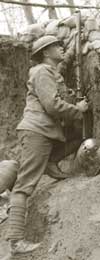|
|
| Look out |
THE GREAT WAR IN HISTORY: DEBATES AND CONTROVERSIES 1914 TO THE PRESENT Edited by Jay Winter and Antoine Prost, Cambridge, ?20
The global conflict that started in 1914 came to be known as the Great War after 1919 because of the record-breaking casualty figures. After 1945, the same war got designated as the First World War. This is because the war between 1939 and 1945 exceeded the Great War in scope and intensity. Historians still hotly debate various issues associated with the world wars ? whether the two were part and parcel of a single process or whether the First World War was inevitable. In this volume, Jay Winter and Antoine Prost assess the state of history writing about the First World War.
The literature on the First World War is huge and growing, most of it being churned out at Britain, the US, Germany and France. In 1998 alone, over 100 books regarding the Great War were published in France. If one takes into account the articles in professional journals, then the list becomes unmanageable.
With time, both the authorship and content of the monographs written on the war have changed. Immediately after the war, mostly military officers took up the pen to describe the battle they had fought. During the Fifties and the Sixties, the authorial position was taken up by historians. The latter group however concentrated on the meta-narrative, which actually means combining the political and military aspects of the war. The Seventies were the time for economic historians. The next decade witnessed the rise of the social historians. After the Nineties, social history came to be replaced by culture studies.
How far are the changing trends in writing military history linked to broader methodological shifts within the discipline of history?
Winter and Prost note that despite the predominance of the Marxist school in the Seventies, it had little influence over the shaping of the economic studies of warfare. The Marxist influence was evident in the study of organized labour in wartime. The liberal Marxist tradition, as epitomized by E.P. Thompson, encouraged some Marxist historians to break out of the dogma of the class struggle analysis to portray day-to-day lives and the moral economy of the workers.
France is home to the Annales school. Between the Fifties and the Eighties, the predominance of this school prompted a methodological distrust for event oriented history, and scant attention was paid to the First World War. Within Germany and Britain, however, historical studies of Great War benefited from the strong tradition of writing linear political studies. In Germany, the question of morality and the Nazi legacy continue to dog the scholars working on the two world wars.
One benign influence of the rise of culture studies in the new millennium is to bring the soldiers back into the orbit of military history. Traditional military history concerned itself with generals and warlords. But in the scheme of culture studies, the everyday experience is important. Therefore, we now find military historians exploring the experience of unknown soldiers in the Western Front.
This reviewer would want to add a word of caution though. Too much micro-studies might result in missing the wood for the trees. In other words, bigger structural issues will be lost if military historians always follow the ?view from below? methodology for understanding the ?forgotten soldiers.?











